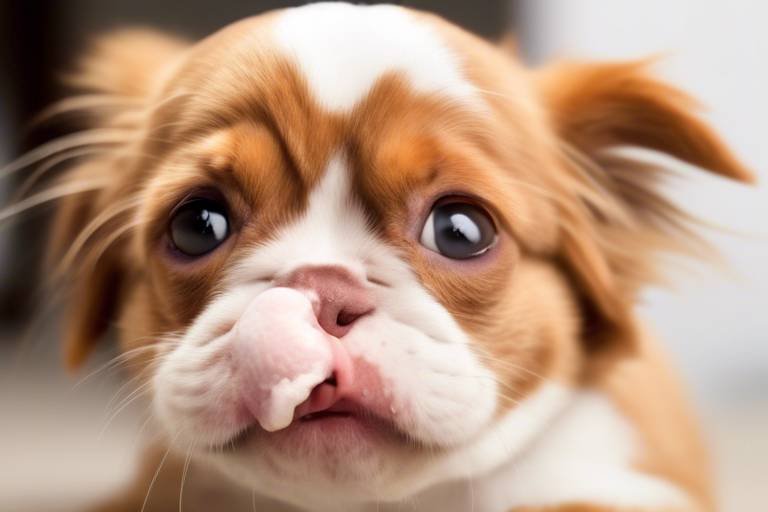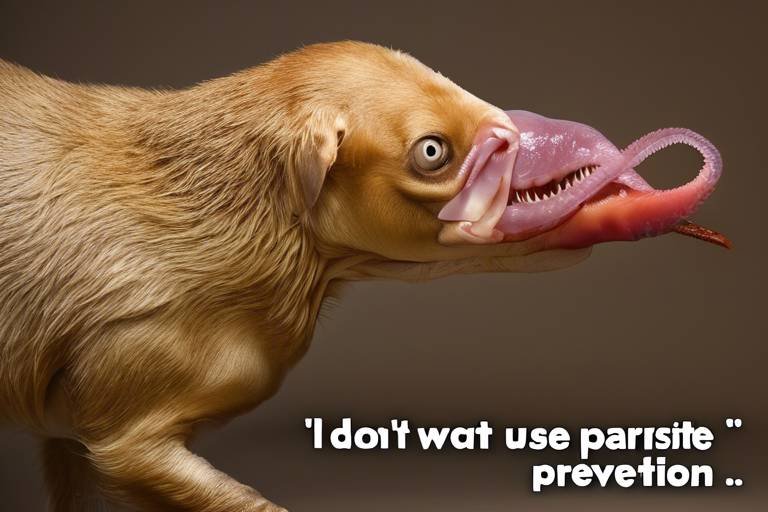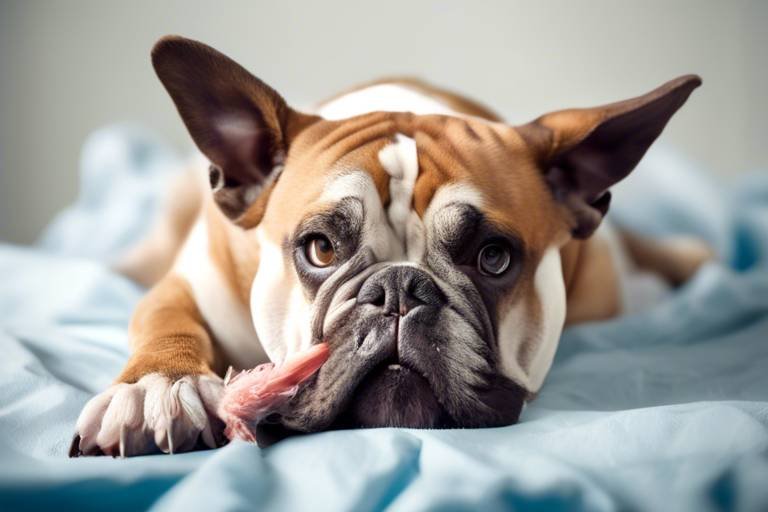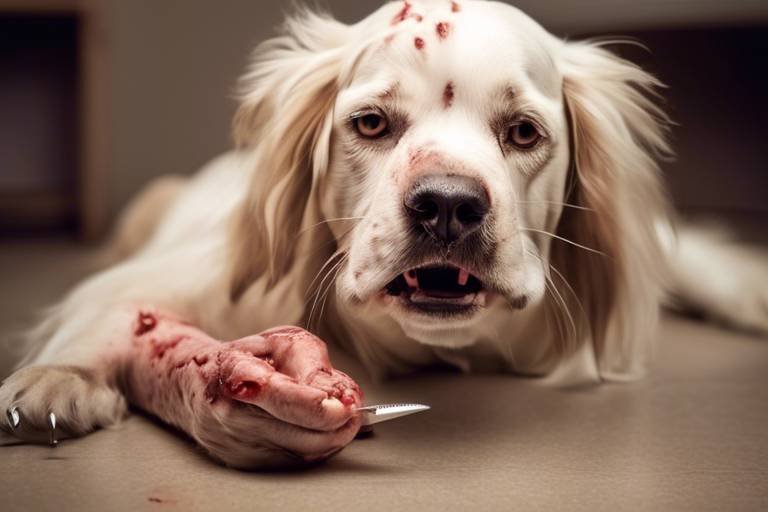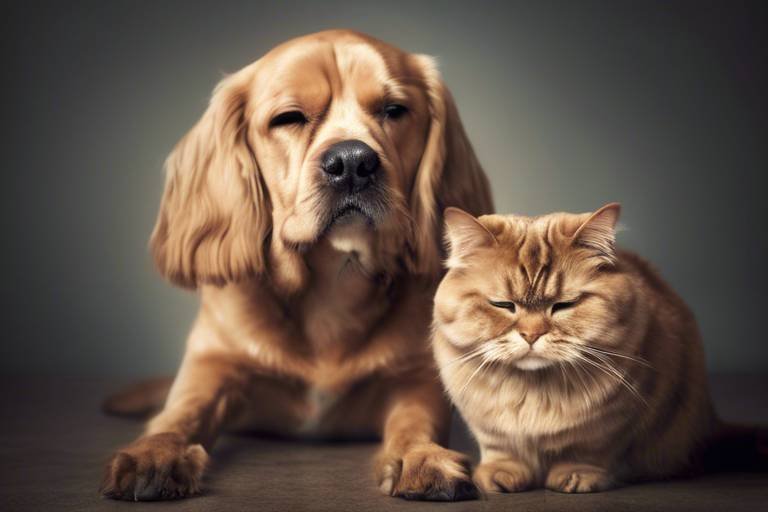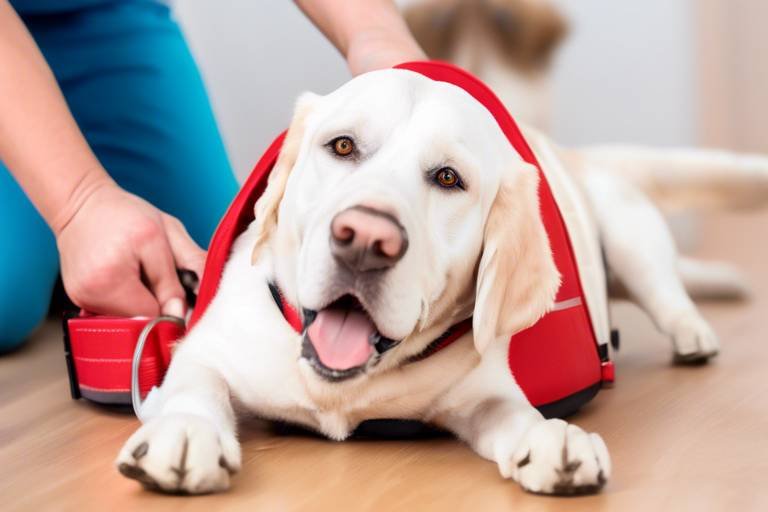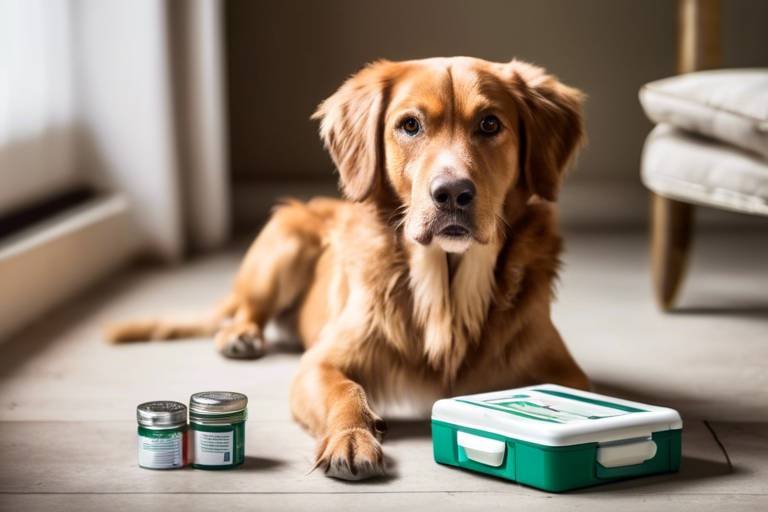Tips for Safely Caring for Pets During Pregnancy
As a pet owner, you know that your furry friends are part of the family. But when you're expecting, it’s essential to consider how this life-changing event affects them too. The good news? With a little planning and love, you can ensure that both you and your pets navigate this exciting time smoothly. This article provides essential tips for pet owners on how to ensure the safety and well-being of their pets during pregnancy, addressing common concerns and offering practical advice.
Recognizing the specific needs of your pet during your pregnancy is crucial. Just like humans, pets can sense changes in their environment and may feel anxious or confused. It's important to observe their behavior closely. For instance, if your dog seems more clingy than usual or your cat is hiding more, these could be signs that they need extra attention. Adapting their care routine can help ease their anxiety while accommodating your own changing needs. Make sure to set aside time for play and cuddles, as this will reassure them that they are still loved and valued.
A safe living space is vital for both you and your pets. During pregnancy, your physical capabilities may change, and your pets might be more curious or restless. This section discusses how to modify your home to minimize risks and ensure a comfortable environment for everyone. Start by assessing your living space to identify areas that could pose hazards for your pets, such as loose wires, breakable items, or toxic plants. The goal is to create a sanctuary that allows everyone to feel at ease.
Identifying and eliminating potential hazards in your home can prevent accidents. Common household items and situations that may pose a risk to pets during pregnancy include:
- Cleaning supplies: Many common cleaners are toxic to pets. Store them securely out of reach.
- Small objects: Items like coins, batteries, or toys can be choking hazards.
- Plants: Certain plants are poisonous to pets, so ensure any greenery is pet-friendly.
By being proactive and addressing these risks, you can create a safer environment for your pets to thrive.
Pet-proofing is essential for a safe environment. Here are some practical tips on securing furniture, cords, and other items that could be dangerous for your pets:
- Use cord organizers to keep electrical cords out of reach.
- Secure heavy furniture to prevent tipping if your pet climbs on it.
- Close off areas that might be unsafe, such as basements or attics.
These small adjustments can make a big difference in keeping your pets safe during this transitional period.
Creating designated areas for your pets can help them feel secure. Having safe zones where pets can retreat and relax is essential, especially when they sense the hustle and bustle of a household preparing for a new baby. Consider setting up a cozy corner with their bed, toys, and fresh water. This will be their little haven, a place where they can escape the noise and chaos. Remember, a calm pet contributes to a calm household!
Regular veterinary check-ups are crucial during pregnancy. Just as you keep up with your own health appointments, your pets need the same attention. Keeping up with vaccinations and health checks ensures their well-being. Schedule an appointment with your veterinarian to discuss any specific concerns you may have regarding your pet's health during your pregnancy. This proactive approach can help identify any issues early on and keep your pets healthy and happy.
Proper nutrition is vital for both pregnant individuals and their pets. During pregnancy, your pets may require different dietary adjustments to maintain their health. Consult your vet about the best food options for your furry friends during this time. They might recommend specific brands or types of food that cater to your pet’s unique needs.
Selecting appropriate pet food is essential for maintaining health. Look for high-quality pet foods that list meat as the first ingredient and avoid those with fillers like corn or soy. A well-balanced diet will ensure your pet has the energy and nutrients necessary to cope with the changes happening in your household. Additionally, keep an eye on their weight; pregnancy can be a time of increased appetite, and you want to avoid any unnecessary weight gain.
Incorporating supplements and treats can enhance your pet's diet. Consider safe options like omega-3 fatty acids, which can improve coat health, or probiotics for digestive support. However, always consult with your veterinarian before adding anything new to your pet's diet. Treats should also be healthy and given in moderation, ensuring your pet feels loved without compromising their health during this important time.
Q: Can my pet sense my pregnancy?
A: Yes, pets are highly intuitive and can pick up on changes in your behavior and scent, often sensing pregnancy before you even announce it.
Q: How can I help my pet adjust to the new baby?
A: Gradually introduce your pet to baby items and sounds, and maintain a consistent routine to help them feel secure.
Q: Are there any foods I should avoid giving my pet during my pregnancy?
A: Yes, avoid foods that are toxic to pets, such as chocolate, grapes, and certain artificial sweeteners like xylitol.
Q: Should I change my pet's routine while I'm pregnant?
A: It's a good idea to maintain a routine but be flexible and attentive to your pet's needs as your pregnancy progresses.
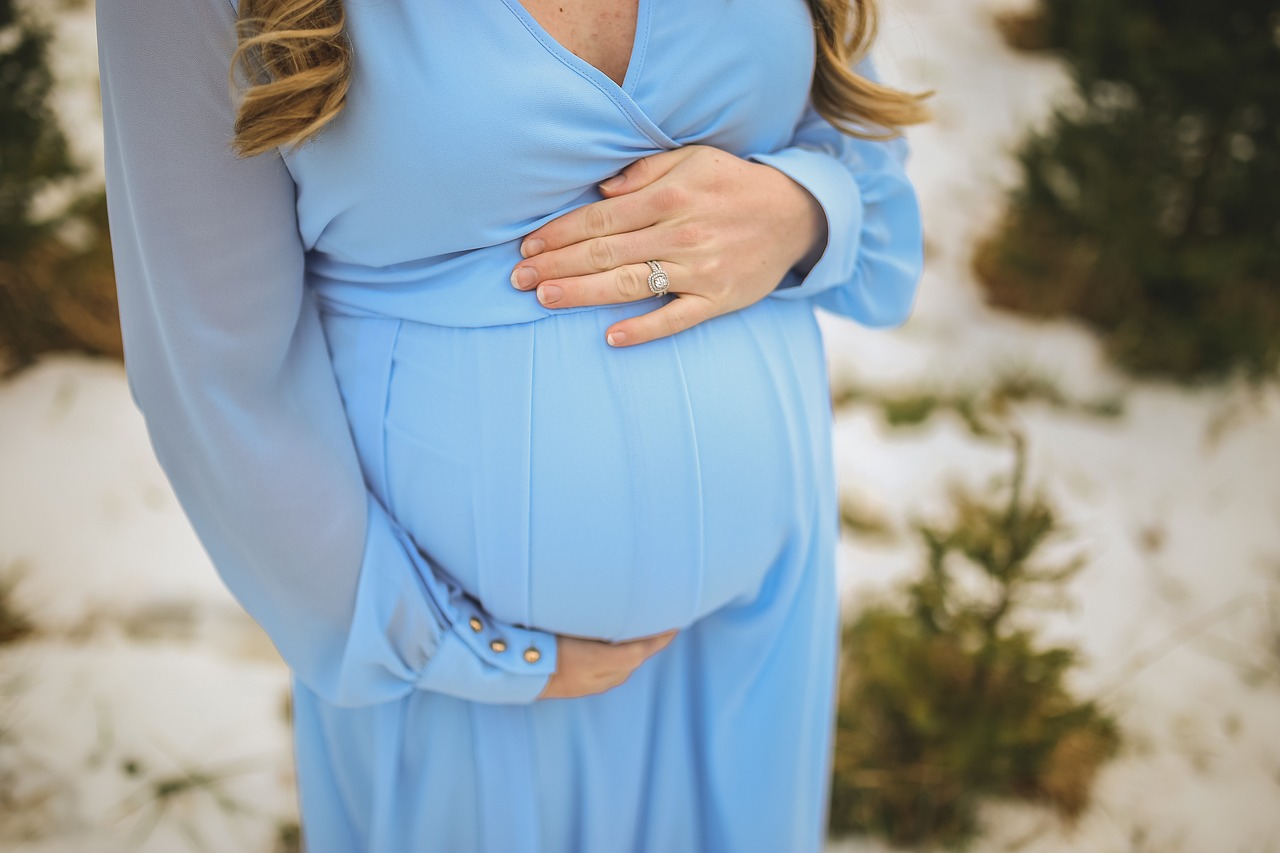
Understanding Your Pet's Needs
This article provides essential tips for pet owners on how to ensure the safety and well-being of their pets during pregnancy, addressing common concerns and offering practical advice.
Recognizing the specific needs of your pet during your pregnancy is crucial. Just like you, your furry friends may experience changes in behavior, appetite, and energy levels during this time. It’s important to be attentive to these shifts and adapt their care routine accordingly. For instance, some pets may become more anxious or clingy, seeking reassurance from you as they sense the changes in your environment. On the other hand, some might prefer solitude, retreating to their favorite spots. Understanding these nuances can help you provide the right support.
Moreover, consider how your own pregnancy might affect your ability to engage with your pet. As you navigate through the ups and downs of pregnancy, you may find yourself feeling fatigued or overwhelmed. This is where establishing a routine can be beneficial. A consistent schedule for feeding, walks, and playtime can provide a sense of stability for your pet, helping them feel secure even when things are in flux.
Additionally, it’s essential to monitor your pet’s health closely during this time. Changes in appetite or behavior can sometimes signal underlying health issues. Regular check-ins with your veterinarian can help address any concerns early on. You might want to keep a journal of your pet's habits and behaviors, noting anything unusual. This can be incredibly helpful during vet visits, ensuring that you cover all bases and keep your pet healthy.
Remember, the bond you share with your pet is a two-way street. Just as you are adjusting to the changes in your life, your pet is too. Being mindful of their emotions and needs will not only help them feel more secure, but it will also strengthen the connection you both share. After all, pets are intuitive creatures; they can sense when something is amiss and will often respond accordingly. So, take a moment to observe and engage with your pet, ensuring they feel loved and cared for during this transitional phase.
A safe living space is vital for both you and your pets. This section discusses how to modify your home to minimize risks and ensure a comfortable environment for everyone.
Identifying and eliminating potential hazards in your home can prevent accidents. This subheading focuses on common household items and situations that may pose a risk to pets during pregnancy.
Pet-proofing is essential for a safe environment. This section offers practical tips on securing furniture, cords, and other items that could be dangerous for your pets.
Creating designated areas for your pets can help them feel secure. This subheading emphasizes the importance of having safe zones where pets can retreat and relax during this transitional period.
Regular veterinary check-ups are crucial during pregnancy. This section highlights the importance of keeping up with vaccinations and health checks for your pets to ensure their well-being.
Proper nutrition is vital for both pregnant individuals and their pets. This section discusses dietary adjustments that may be necessary to keep your pets healthy during this time.
Selecting appropriate pet food is essential for maintaining health. This subheading provides guidance on what to look for in pet food to support your pet’s needs during pregnancy.
Incorporating supplements and treats can enhance your pet's diet. This section discusses safe options to consider and how they can contribute to your pet's overall health during your pregnancy.
Q: How can I tell if my pet is stressed during my pregnancy?
A: Look for signs such as excessive barking, hiding, or changes in eating habits. Providing a calm environment and extra attention can help ease their stress.
Q: Should I change my pet's diet while I'm pregnant?
A: It may be necessary to adjust their diet based on their activity level and health needs. Consult your vet for personalized recommendations.
Q: How do I ensure my pet gets enough exercise while I'm pregnant?
A: Short, regular walks and play sessions can help keep your pet active. Consider enlisting help from family or friends if you're feeling too tired.
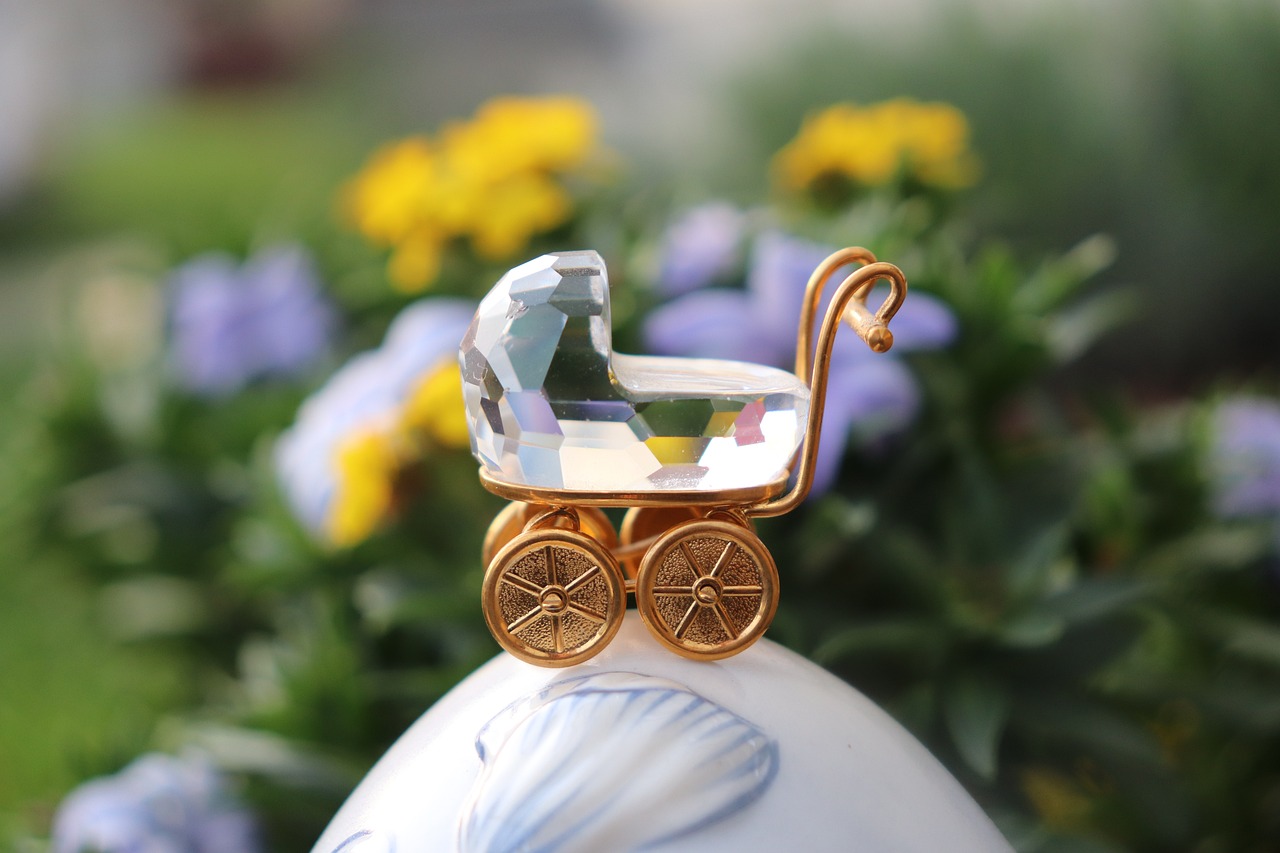
Creating a Safe Environment
When you're preparing for a new addition to your family, it’s easy to focus on the baby and forget about your furry friends. However, creating a safe environment for your pets during your pregnancy is just as important. Think of it as preparing a cozy nest not just for your baby, but for your beloved pets as well. A little bit of planning can go a long way in ensuring that your home is a sanctuary for everyone involved.
First and foremost, consider the layout of your home. Are there areas that pose a risk to your pets? For instance, if you have stairs, you might want to create a barrier to prevent your pets from accessing them unsupervised. This is especially crucial if your pets are prone to jumping or running, as they might not realize the potential danger of a tumble. Additionally, think about the spaces where your pets spend most of their time. Are they cluttered with items that could be harmful? Take a moment to declutter and organize these areas, ensuring that your pets have a safe haven.
Another key aspect of creating a safe environment is to eliminate any potential hazards. This could include toxic plants, small objects that could be swallowed, or even cleaning supplies that are within reach. Here’s a quick rundown of common household items that can be dangerous for pets:
- Household cleaners: Many cleaning products contain chemicals that are harmful if ingested.
- Human food: Foods like chocolate, grapes, and onions can be toxic to pets.
- Electrical cords: Pets may chew on these, posing a risk of shock or strangulation.
By being proactive and removing these hazards, you're not just protecting your pets but also ensuring peace of mind for yourself. Imagine the relief of knowing that your pets are safe while you focus on your pregnancy!
Next, consider the concept of pet-proofing your home. Just as you would baby-proof for a newborn, pet-proofing involves securing furniture, cords, and other items that could be dangerous. For instance, use cord organizers to keep electrical cords out of reach, and ensure that heavy furniture is stable and won’t tip over if a curious pet decides to climb. You might even want to invest in baby gates to restrict access to certain rooms, creating a safe zone for your pets.
Designating safe spaces is also essential. Just like humans, pets need their own little corners to retreat to, especially during times of change. Create a cozy area with their favorite bed, toys, and a few treats. This will not only help them feel secure but also give them a place to go when they need some downtime. Think of it as their personal sanctuary amidst the hustle and bustle of your pregnancy preparations.
Finally, remember that regular vet visits are crucial during this time. Keeping up with vaccinations and health checks ensures that your pets are in tip-top shape. A healthy pet is a happy pet, and knowing that they’re well taken care of allows you to focus on your own health and well-being. So, make that appointment and give your furry friend the care they deserve!
Removing Hazards
When it comes to ensuring the safety of your pets during your pregnancy, one of the most critical steps is removing potential hazards from your home. Just like how you would prepare your home for a new baby, your furry friends also need a safe environment to thrive. Imagine your home as a cozy sanctuary, but with a few hidden dangers lurking around. It’s essential to take a closer look at your living space and identify items that could pose risks to your pets. For instance, common household items like cleaning supplies, medications, and even certain plants can be toxic to pets. It’s like having a treasure map where 'X' marks the spot of danger; you need to find and eliminate those risks.
Start by going through each room in your house and making a list of items that could potentially harm your pets. This could include:
- Chemicals: Cleaning agents, pesticides, and antifreeze should be stored in locked cabinets or high shelves, out of reach.
- Plants: Some plants, such as lilies and azaleas, are poisonous to pets. Ensure that any houseplants are safe or removed.
- Food: Many common foods, like chocolate and grapes, can be toxic to pets. Keep these out of reach and educate your family about what not to feed them.
Additionally, consider the layout of your furniture. Sharp corners, heavy objects that could fall, or even electrical cords can be potential hazards. Think of your pets as little explorers; they’re curious and will investigate every nook and cranny. It’s your responsibility to ensure that their adventures don’t lead to accidents. You might want to use cord covers for any exposed wires and secure heavy furniture to the wall to prevent tipping.
Also, remember that pets can be surprisingly resourceful when it comes to getting into places they shouldn’t. Always check for small gaps or openings where they could squeeze through, and make sure to block off any areas that might be unsafe. This could be as simple as using baby gates to restrict access to certain rooms or areas of your home.
Lastly, think about the overall atmosphere of your home. If you have a lot of clutter, it can create an environment where pets can easily get into trouble. Keeping your space organized not only helps you but also ensures that your pets have a clear and safe area to roam. By taking these proactive steps to remove hazards, you’re not just protecting your pets but also creating a peaceful sanctuary for everyone during this special time.
Pet-Proofing Your Home
When it comes to , the goal is to create a safe haven for your furry friends, especially during the exciting yet delicate time of pregnancy. Just like you would prepare your home for a new baby, ensuring your pets are safe and comfortable is equally important. Start by looking around your living space with a fresh perspective. Are there any sharp edges on furniture that could pose a risk? Are there cords dangling that your pets might chew on? These seemingly minor details can lead to major accidents.
One of the first steps in pet-proofing is to identify potential hazards. Consider the following common household items that can be dangerous:
- Chemicals and Cleaning Supplies: Store these in high cabinets or locked areas.
- Small Objects: Items like coins, batteries, and small toys can be choking hazards.
- Plants: Many common houseplants are toxic to pets. Make sure to research and remove any harmful varieties.
Next, think about securing your furniture. If your pet loves to jump on the couch or explore the kitchen counters, you might want to consider using furniture covers or rearranging items to minimize access to unsafe areas. For example, using baby gates can help keep pets out of certain rooms where they might encounter danger.
Additionally, cords from electronics can be a major temptation for pets, especially young ones. To prevent any chewing incidents, use cord protectors or tape them down to the baseboards. This simple adjustment can save you from costly repairs and keep your pets safe.
Creating designated safe spaces is also a crucial aspect of pet-proofing. Think of these areas as your pet's personal retreat, a cozy corner where they can relax without feeling overwhelmed by the changes happening in the home. You can use pet beds, blankets, and toys to make these spaces inviting. Remember, a stressed pet can lead to unwanted behaviors, so providing a sanctuary for them is essential.
Lastly, don’t forget about the importance of regular checks. As your pets explore their environment, new hazards may arise. Make it a habit to walk through your home periodically to ensure it remains a safe space. By staying proactive, you can help prevent accidents and ensure a harmonious household for both you and your pets during this significant time.
Q: How can I tell if my pet is feeling stressed during my pregnancy?
A: Look for signs such as excessive barking, hiding, or changes in eating habits. If you notice these behaviors, it may be time to provide more comfort and attention.
Q: Are there specific plants I should avoid having in my home?
A: Yes, some common toxic plants include lilies, poinsettias, and philodendrons. Always research any new plants before bringing them into your home.
Q: What should I do if my pet ingests something dangerous?
A: Contact your veterinarian or an emergency pet poison hotline immediately. Acting quickly can be crucial for your pet's safety.
Designating Safe Spaces
Creating designated safe spaces for your pets during your pregnancy is not just a good idea; it’s a necessity. Think of it as setting up a cozy retreat where your furry friends can feel secure and relaxed amidst all the changes happening in your home. Just like you might want a quiet corner to escape to when life gets overwhelming, your pets will benefit from having their own little sanctuary. This is especially important as they may sense the changes in your routine and environment, which can lead to anxiety.
When selecting a safe space for your pets, consider areas that are quiet, away from foot traffic, and free from potential hazards. A corner of a room with their favorite bed, toys, and blankets can work wonders. You might even want to include some of their favorite items to make it feel more like home. For instance, if your dog loves a certain plush toy, place it in their designated area. This will help them associate the space with comfort and security.
In addition to physical comfort, it’s essential to ensure that these spaces are also emotionally safe. Pets can pick up on your stress levels, so maintaining a calm environment is key. You might want to use soft lighting or calming music to create a soothing atmosphere. If you have multiple pets, consider designating separate areas for each, as this can help reduce competition and stress among them.
Here are a few tips to help you effectively designate safe spaces for your pets:
- Choose the Right Location: Look for areas that are quiet and away from the hustle and bustle of everyday life.
- Include Comfort Items: Place their favorite bed, blankets, and toys in the designated space to make it inviting.
- Maintain a Calm Atmosphere: Use soft lighting and soothing sounds to create a relaxing environment.
- Monitor and Adjust: Keep an eye on your pets to see how they respond to their safe spaces and make adjustments as needed.
Ultimately, the goal is to create a haven where your pets can retreat whenever they feel overwhelmed or anxious. By providing these safe spaces, you’re not only ensuring their comfort but also enhancing their overall well-being during this transitional period in your life. Remember, a happy pet makes for a happy home!
Q: How can I tell if my pet is feeling anxious during my pregnancy?
A: Signs of anxiety in pets can include excessive barking, hiding, destructive behavior, or changes in eating habits. If you notice these signs, it might be time to reassess their environment and provide more comfort.
Q: Should I change my pet's routine during my pregnancy?
A: While some adjustments may be necessary, try to maintain a consistent routine for your pet. This can help reduce anxiety and provide them with a sense of stability.
Q: How can I make my pet feel more secure in their designated space?
A: Incorporate their favorite toys, blankets, and even your scent into their safe space. Regularly spend time with them in this area to help them associate it with positive experiences.
Maintaining Regular Vet Visits
When it comes to ensuring your pet's health during your pregnancy, is absolutely essential. Just like you would schedule check-ups to monitor your own health, your furry friend needs the same level of attention. Think of your veterinarian as a trusted partner in this journey, one who can guide you in making the best decisions for both your pet and your growing family. Regular check-ups not only help in keeping vaccinations up to date but also allow for early detection of any potential health issues that could arise.
During your pregnancy, your pet might experience changes in behavior or health that could be concerning. It’s crucial to keep an eye on these changes and communicate them with your vet. For instance, if your dog suddenly becomes more anxious or your cat seems to be more lethargic, these could be signs that something is off. Your vet can provide valuable insights and recommend adjustments to their care routine to help them cope with the changes happening in your household.
Moreover, keeping a consistent schedule for vet visits can help in tracking your pet's health over time. Consider the following key points when planning these visits:
- Vaccinations: Ensure that your pet is up to date on all vaccinations, as this will protect them from various diseases.
- Health Checks: Regular examinations can catch any underlying health issues before they become serious.
- Behavioral Assessments: Your vet can provide advice on how to manage any behavioral changes your pet may exhibit during this transitional period.
It's also a good idea to discuss any dietary changes or supplements your pet might need during your pregnancy. Your vet can recommend the best options tailored to your pet's specific needs. Remember, a healthy pet contributes to a happy home, especially when you're preparing for a new addition to the family.
In summary, regular vet visits are not just a routine; they are a vital part of caring for your pet during your pregnancy. By prioritizing these check-ups, you are taking proactive steps to ensure that your beloved companion remains healthy and happy, which in turn creates a more harmonious environment for everyone involved.
Q1: How often should I take my pet to the vet during my pregnancy?
A1: It's recommended to maintain a regular schedule, ideally every 6 to 12 months, but consult your vet for personalized advice based on your pet's health.
Q2: What should I discuss with my vet during these visits?
A2: Talk about any behavioral changes, dietary needs, vaccinations, and any concerns you may have regarding your pet's health.
Q3: Can I bring my pet to the vet while I'm pregnant?
A3: Yes, it is safe to bring your pet to the vet during your pregnancy. Just take necessary precautions to ensure both your safety and your pet's comfort.

Nutrition and Diet Adjustments
When it comes to nutrition during pregnancy, both you and your pet need to be on the same page. Just as you might adjust your diet to ensure a healthy pregnancy, your furry friend also requires some dietary tweaks to keep their health in check. It's not just about filling their bowl with food; it's about providing the right kind of nourishment that supports their overall well-being. Have you ever thought about how your pet's diet can impact their mood and energy levels? A well-balanced diet can make all the difference!
First off, let’s talk about choosing the right pet food. Not all pet foods are created equal, and it’s essential to select high-quality options that meet your pet’s specific needs. Look for foods that list real meat as the first ingredient, as this is a good indicator of protein content. Additionally, consider foods that are formulated for your pet's life stage—puppy or kitten formulas often contain higher levels of nutrients to support growth, while adult formulas may be more appropriate for mature pets. Reading labels can feel overwhelming, but it's worth it to ensure your pet is getting the best possible nutrition.
Now, what about supplements and treats? Sometimes, a little extra boost can help your pet thrive during this transitional period. For instance, omega-3 fatty acids can be excellent for maintaining a shiny coat and healthy skin. You might also consider adding probiotics to their diet, which can aid in digestion and overall gut health. Just remember, not all supplements are safe for pets, so consult your veterinarian before introducing anything new. Treats can also be a great way to reward your pet, but opt for healthy options that align with their dietary needs—think fruits like apples or carrots instead of processed snacks.
It’s also important to monitor your pet’s weight during your pregnancy. Just like humans, pets can gain or lose weight based on their diet and activity levels. Keeping a close eye on their weight can help you identify any potential issues early on. If your pet starts to gain weight, it might be time to cut back on treats or adjust their portion sizes. On the flip side, if they seem to be losing weight, a visit to the vet is in order to rule out any underlying health concerns.
Lastly, hydration is key! Ensure your pet has constant access to fresh water. Dehydration can lead to serious health issues, especially during times of change. If you notice your pet isn’t drinking enough, try switching to a pet water fountain, as many pets are more inclined to drink from running water. Your pet’s hydration is just as important as their food intake, so don’t overlook it!
- What should I feed my pet during my pregnancy? Focus on high-quality pet food that meets their specific life stage needs, and consult your vet for personalized recommendations.
- Are there any foods I should avoid giving my pet? Yes, avoid giving your pet human foods that are toxic to them, such as chocolate, grapes, and onions.
- How can I tell if my pet is gaining too much weight? Monitor their body condition score and consult your vet if you notice significant changes in their weight.
- Can I give my pet supplements? Yes, but always consult your veterinarian before introducing any new supplements to ensure they are safe and beneficial.
Choosing the Right Pet Food
When it comes to keeping your furry friends happy and healthy during your pregnancy, one of the most critical aspects to consider is their diet. Just like you might be adjusting your own eating habits to ensure the best nutrition for your developing baby, your pets also require special attention to their dietary needs. Choosing the right pet food is not just about filling their bowls; it's about providing the essential nutrients that will support their overall health and well-being during this transitional time.
First and foremost, it’s essential to look for high-quality pet food that meets the specific needs of your pet. For dogs and cats, this often means selecting food that is labeled as "complete" or "balanced," which indicates that it contains all the necessary nutrients your pet needs to thrive. You might be wondering, what exactly should I be looking for? Here are some key components to consider:
- Protein Source: Ensure that the primary ingredient is a high-quality protein source, such as chicken, beef, or fish. Protein is vital for maintaining muscle mass and overall health.
- Healthy Fats: Look for sources of omega fatty acids, which are crucial for skin and coat health. Ingredients like fish oil or flaxseed can provide these benefits.
- Whole Grains: If your pet's diet includes grains, opt for whole grains like brown rice or oats, which offer more nutrients than processed grains.
- Vitamins and Minerals: Ensure that the food is fortified with essential vitamins and minerals that support immune function and overall health.
It's also a good idea to consult with your veterinarian before making any drastic changes to your pet's diet. They can provide personalized recommendations based on your pet's specific health needs and any dietary restrictions they may have. For instance, if your pet has allergies or sensitivities, your vet can guide you toward hypoallergenic options that will keep them safe and healthy.
Moreover, consider the life stage of your pet. Puppies and kittens have different nutritional requirements than adult or senior pets. If you have a young pet, they may need food that is specifically formulated for growth and development. On the other hand, older pets might benefit from diets that support joint health and are lower in calories to prevent obesity.
Lastly, don't forget to pay attention to portion sizes. Overfeeding can lead to obesity, which is a significant concern, especially during times of change like pregnancy. Follow the feeding guidelines on the pet food packaging and adjust based on your pet's activity level and weight. Remember, a healthy pet is a happy pet, and by choosing the right food, you’re setting the stage for a smooth transition during your pregnancy.
Supplements and Treats
This article provides essential tips for pet owners on how to ensure the safety and well-being of their pets during pregnancy, addressing common concerns and offering practical advice.
Recognizing the specific needs of your pet during your pregnancy is crucial. This section explores how to adapt their care routine to accommodate both your and your pet's changing needs.
A safe living space is vital for both you and your pets. This section discusses how to modify your home to minimize risks and ensure a comfortable environment for everyone.
Identifying and eliminating potential hazards in your home can prevent accidents. This subheading focuses on common household items and situations that may pose a risk to pets during pregnancy.
Pet-proofing is essential for a safe environment. This section offers practical tips on securing furniture, cords, and other items that could be dangerous for your pets.
Creating designated areas for your pets can help them feel secure. This subheading emphasizes the importance of having safe zones where pets can retreat and relax during this transitional period.
Regular veterinary check-ups are crucial during pregnancy. This section highlights the importance of keeping up with vaccinations and health checks for your pets to ensure their well-being.
Proper nutrition is vital for both pregnant individuals and their pets. This section discusses dietary adjustments that may be necessary to keep your pets healthy during this time.
Selecting appropriate pet food is essential for maintaining health. This subheading provides guidance on what to look for in pet food to support your pet’s needs during pregnancy.
When it comes to enhancing your pet’s diet during pregnancy, can play a significant role. Just like how you might crave certain foods or vitamins, your pets can benefit from additional nutrients that help support their health and well-being during this transitional period. Think of supplements as the cherry on top of a well-balanced meal!
It's important to choose supplements that are specifically designed for your pet's needs. For instance, omega-3 fatty acids can help promote a shiny coat and healthy skin, while probiotics can aid digestion, which is especially beneficial if your pet is experiencing any changes in appetite or stomach sensitivity. Always consult your veterinarian before introducing any new supplements to ensure they are safe and appropriate for your pet.
Additionally, treats can be a great way to reward your pet and keep their spirits high. However, not all treats are created equal. Look for high-quality, natural treats that are free from artificial additives. You might even consider making homemade treats using simple ingredients like pumpkin or peanut butter, which can be both delicious and nutritious. Here’s a quick recipe to consider:
Ingredients: - 1 cup pumpkin puree - 1/2 cup peanut butter (make sure it’s xylitol-free) - 2 cups whole wheat flour - 1 egg - Water (as needed) Instructions: 1. Preheat your oven to 350°F (175°C). 2. Mix all ingredients together until a dough forms. 3. Roll out the dough and cut into shapes. 4. Bake for 20-25 minutes until golden brown. 5. Let cool before serving to your pet!
In summary, incorporating the right supplements and treats can significantly enhance your pet's diet during your pregnancy. Just remember to keep their needs in mind and consult with your vet to ensure you’re making the best choices for your furry friend.
- Can I give my pet human supplements? - It's best to avoid giving human supplements to pets without consulting a veterinarian, as some ingredients can be harmful to them.
- What are the signs that my pet needs supplements? - Signs can include dull fur, lethargy, or digestive issues. Always consult your vet if you notice any changes.
- Are there any treats I should avoid during pregnancy? - Yes, avoid treats with artificial additives and those that are high in sugar or fat. Always opt for natural options.
Frequently Asked Questions
- What should I do to adapt my pet's care during my pregnancy?
During your pregnancy, it's essential to pay attention to your pet's changing needs. This might mean adjusting their exercise routine, ensuring they have a quiet space to retreat to, and being more vigilant about their health. Regularly check in with your veterinarian to tailor their care appropriately.
- How can I create a safe environment for my pets while pregnant?
Creating a safe environment involves removing hazards around your home. This includes securing cords, keeping toxic plants out of reach, and ensuring that any small objects that could be swallowed are stored away. Designating safe spaces for your pets to relax can also help them feel secure during this transitional time.
- Why are regular vet visits important during my pregnancy?
Regular veterinary check-ups are crucial because they ensure that your pets remain healthy throughout your pregnancy. Keeping up with vaccinations and health checks helps prevent any potential health issues that could arise, providing peace of mind for you and your family.
- What dietary adjustments should I consider for my pets during my pregnancy?
Proper nutrition is vital for your pet's health during your pregnancy. You might need to reassess their diet and consider high-quality pet food that meets their specific needs. Consulting your vet about appropriate food choices and any necessary supplements can help keep your pet healthy and happy.
- Are there any specific supplements I should give my pet while I'm pregnant?
Incorporating safe supplements can enhance your pet's diet during your pregnancy. Look for options recommended by your veterinarian, as they can provide guidance on what is safe and beneficial for your pet's overall health during this time.




